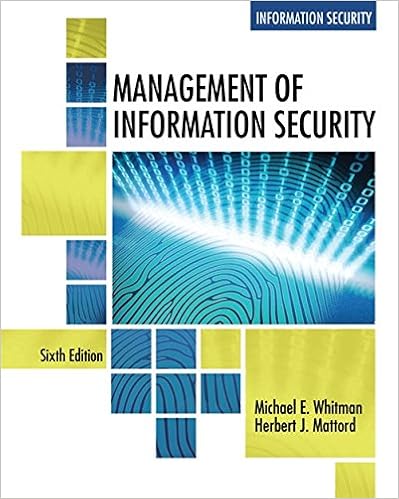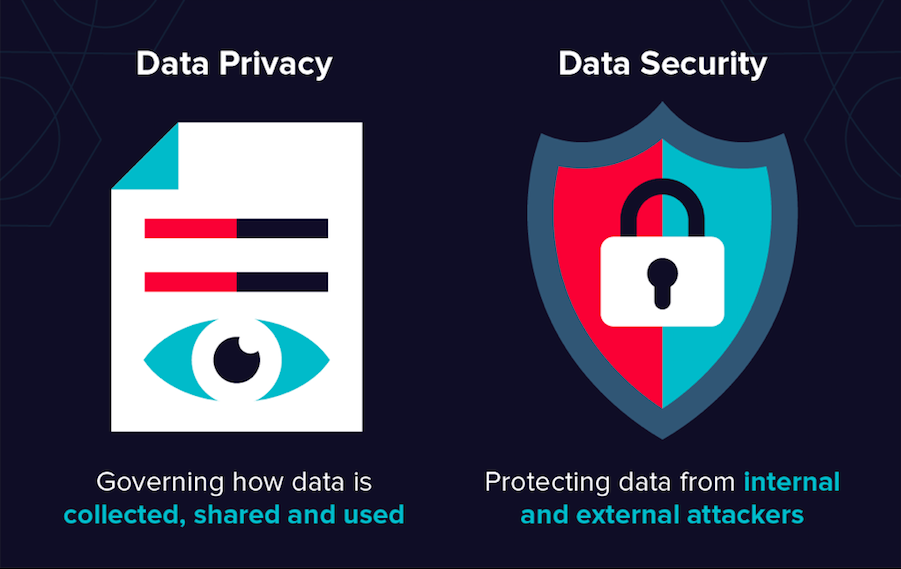Dr. Ning Zhang
425 Ambrose Hall
zhangningsau.github.io
ZhangNing@sau.edu
563-333-6144
Office Hours
Please check my schedule . Feel free to stop by my office. You can also make an appointment to meet me at a specific time.
Course Description
This course examines security issues related to the safeguarding of sensitive personal and corporate information against deliberant or inadvertent disclosure or corruption. The societal value of security and privacy regulations and the effects of data breaches on individuals and businesses are explored, with particular attention given to balancing interests among individuals, governments, and enterprises.
Objectives
Upon completion of this course students will be able to:
- Explain the problems associated with inadequate data security policies.
- Determine potential implications of compromised business data.
- Describe enterprise strategies to prevent data security breaches.
- Describe corporate security policies and data governance.
- Discuss intellectual property theft and individual data privacy.
Prerequisites
Graduate Standing
Schedule
The class meets on Wednesday from 6:45 to 9:20PM in room 110 of McCarthy Hall. There will be no class on the following day:
- Wednesday, Mar 23
For other important dates, please check the academic calendar
Textbook
Management of Information Security 6th Edition
| Michael E. Whitman and Herbert J. Mattord ISBN-13: 978-1337405713 ISBN-10: 133740571X Amazon Cengage SAU Bookstore |
 |
FDAMA-DMBOK: Data Management Body of Knowledge: 2nd Edition(optional)
| DAMA International ISBN-13: 78-1634622349 ISBN-10: 1634622340 Amazon SAU Bookstore |
 |
Data Management at Scale: Best Practices for Enterprise Architecture 1st Edition(Optional)
| Piethein Strengholt ISBN-13: 978-1492054788 ISBN-10: 149205478X Amazon Bookstore |
 |
Class Web Site & Blackboard
A class web site has been created for this class. A link to the class web site can be found at ZhangNingSAU.github.io. Students should check the class web site regularly throughout the semester. The Blackboard course management system (blackboard.sau.edu) will be used to post grades for this class. All other course information will be provided through the class web site.
Communicating with Me
You are welcome to ask me questions by e-mail. I will try to answer your e-mails within 12 hours from the time they are received. You should make sure to include "CSCI-185" in the subject line to help me get to your e-mail quickly. I will occasionally send e-mail announcements to all students in the class and you are responsible for all official correspondence sent to your St. Ambrose address (@sau.edu). Make sure that you check this e-mail account regularly. I would also prefer receiving e-mails from your sau account, rather than from commercial e-mail providers such as hotmail, gmail etc. I will try to call you by your preferred name. As a matter of professionalism, I’d prefer you call me "Prof. Zhang" or "Dr. Zhang". I will insist that we all start our e-mails with the recipient’s name (not "Hey" or just blank) and end our e-mails with the sender's name.
How Your Grade is Determined
Your grade for this class is determined by the following:
| Attendance | 5% |
| Homework | 50% |
| Midterm Exam/Project | 20% |
| Final Exam/Project | 25% |
Midterm Exam The midterm exam will be on Wednesday, March 16. This will be a closed book and open notes exam. No electronic devices may be used. All personal electronic devices must be stored under your seat during the exam. This includes calculators, cell phones, watches, and all other electronic devices. Lab computers may not be used on the exam.
Final Exam The final exam will be on Wednesday, May 20, from 7:10 — 9:00 PM (double check here). The final exam will comprehensive and will include all topics covered during the semester. This will be a closed book and open notes exam. No electronic devices may be used. All personal electronic devices must be stored under your seat during the exam. This includes calculators, cell phones, watches, and all other electronic devices. Lab computers may not be used on the exam.
Homework Assignments Each assignment will be given a date and a time when the assignment is due. You are expected to complete all assignments on time, no assignments will be accepted after the due time. Your homework must:
- Be ziped as one single archive file if there are more than 1 file
- Have the course number, homework number, your name and BeeCard number in the file name(csci560_homework1_JohnDoe(0123456).pdf for example).
Attendance Attendance is mandatory. You are expected to attend all classes and to arrive on time. I will take attendance most days, but not every day. Your attendance grade is based on those days when I take attendance.
Letter grades will be assigned based on the following:
| Grade | Min Score | Grade | Min Score | Grade | Min Score | Grade | Min Score |
| A+ | 98 | B+ | 87 | C+ | 77 | D+ | 67 |
| A | 93 | B | 83 | C | 73 | D | 63 |
| A- | 90 | B- | 80 | C- | 70 | D- | 60 |
In determining borderline grades, I reserve the right to consider perceived student initiative and class participation.
An incomplete will be given only when a student meets the requirements of the latest St. Ambrose University policies. Earning a low grade is not a valid reason for an incomplete.
Make-Up Policy
Exams Make-up exams will only be given in the event of a documented excused absence (for example, medical absences required a signed note on letterhead paper from your doctor.) You must notify me of an excused absence within 48 hours after the missed exam or no make-up will be allowed. Normally make-up exams are somewhat more difficult that the original exam.
Quizzes Quizzes cannot be made up. You must be present in class on the day of the quiz in order to receive credit for the quiz.
Homework Assignments Homework assignments cannot be turned in late. You must turn in the assignment when it is due.
Academic Integrity
You are encouraged to discuss homework and other parts of the class with other students. Such discussions about ideas are not cheating, whereas the exchange of finished, written answers is cheating. Never give finished answers to someone else or use someone else’s finished answers. Plagiarism and cheating are both considered grounds for a failing grade for that particular piece of work. Furthermore, they would weigh heavily in the final grade, possibly resulting in a failing grade for the entire course. Please see the St. Ambrose Academic Integrity Policy for further details.
Students with Disabilities
Students with disabilities who believe that they may need accommodations in this class are encouraged to contact the Accessibility Resources Center (ARC) at 333-6275 as soon as possible to better ensure that such accommodations are implemented in a timely fashion. Students may also want to visit ARC on line at: www.sau.edu/Accessibility_Resource_Center.html.
Student Succes Center
If you feel you need additional support for this class, you are encouraged to go to the Student Success Center on the first floor of Ambrose Hall or to call 333-6331 for information regarding tutoring in this class. The SSC provides free peer tutoring for most 100 and 200 level courses, writing tutorials for papers in all classes, and study strategy advice. The center staff suggests that students seek help early, although drop in and contractual tutorials are arranged throughout the semester.
How to Succeed in this Class
Attend Class Showing up on time for every class is the easiest way to improve your grade — not merely because of the credit for attendance, but also because of exposure to the content presented in class.
Level of Effort Normally a student can expect to spend about two hours of work, outside of class, for each credit unit. Thus a typical expected workload would be about six hours per week outside of class. This is not a course where students read or write essays. Most of your time will be spent experimenting with programs and studying programming language conventions and techniques to understand concepts.
Prepare for Class Read the chapter sections ahead of time for each class. When reading the material, enter and compile as many of the sample programs as possible. You may be surprised at how much this reinforces the chapter material. Reading ahead of time will make it easier to follow the lecture and it will help you decide what to ask about in class.
Do the Homework Start working on the homework problems as soon as possible. Often, a problem that stumps you one day will seem obvious a day later. You should view the homework assignments as preparation for the exams. It is imperative that you understand and complete the homework.
Manage Your Time I encourage you to develop a system to actively manage you priorities and time. You should schedule time each week to complete assignments and to complete readings in advance of class. Effective time management will help you not only in this class but also in the rest of your studies and in your career. Poor time management and late completion of assignments will be detrimental to your learning experience and will be reflected in your grade for the class.
Stay Organized Organize your class notes and save all of your graded homework assignments. These will be a great resource when studying for the exams. Also be sure to keep your computer files organized. You will write a plethora of programs for this class; it is easy or them to quickly become disorganized.
Visit Me If you have problems during the semester that affect your coursework, please see me as soon as possible so we can discuss your options for the course. If you find yourself falling behind in the class, please see me. It is likely we can work together to get you back on track.
Tentative Course Outline (subject to change)
| Week | Topic | |
|---|---|---|
| 1 | Wedn 1/26 | Chapter 1: IntroductiontotheManagementofInformation Security |
| 2 | Wedn 2/2 | Chapter 2: Compliance: Law and Ethics |
| 3 | Wedn 2/9 | Chapter 3: Governance and Strategic Planning for Security |
| 4 | Wedn 2/16 | Chapter 4: Information Security Policy |
| 5 | Wedn 2/23 | Chapter 5: Developing the Security Program |
| 6 | Wedn 3/2 | Chapter 5: Developing the Security Program |
| 7 | Wedn 3/9 | Chapter 6: Risk Management: Assessing Risk |
| 8 | Wedn 3/16 | Midterm Exam (3/5) |
| 9 | Wedn 3/23 | Spring Break – No Class |
| 10 | Wedn 3/30 | Chapter 7: Risk Management: Treating Risk |
| 11 | Wedn 4/6 | Chapter 8: Security Management Models |
| 12 | Wedn 4/13 | Chapter 9: Security Management Practices |
| 13 | Wedn 4/20 | Chapter 10: Planning for Contingencies. |
| 14 | Wedn 4/27 | Chapter 10: Planning for Contingencies. |
| 15 | Wedn 5/4 | Chapter 11: Security Maintenance |
| 16 | Wedn 5/11 | Chapter 12: Protection Meehanisms |
| 17 | Week of 5/18 | The Final Exam is on Wednesday May 18, from 7:10 to 9:00 pm |
